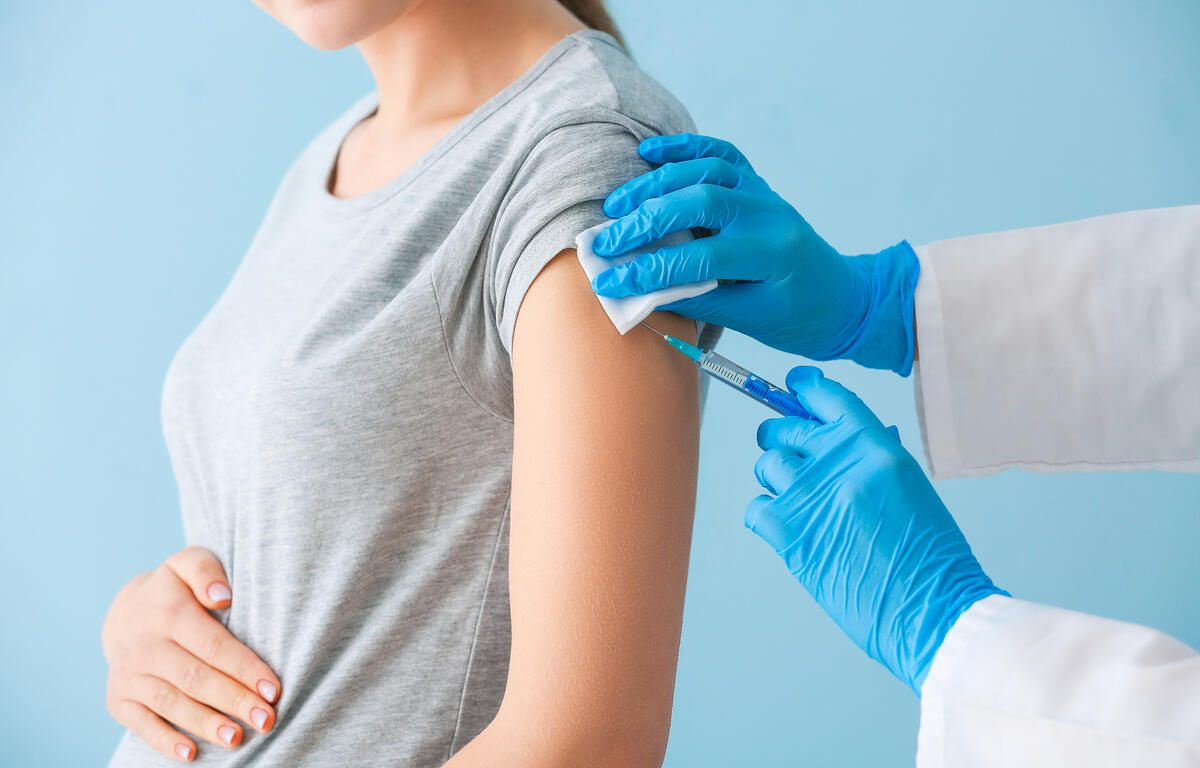MONADNOCK REGION, N.H. (MyKeeneNow) As flu cases rise to very high levels in New Hampshire, health officials are urging residents to get vaccinated and take precautions to protect themselves during one of the worst flu seasons in recent years. According to UnitedHealthcare data, the spread of influenza has intensified, prompting medical professionals to stress the importance of vaccinations for flu, COVID-19, RSV, and shingles.
Flu vaccination is recommended for everyone ages six months and older, with few exceptions. The flu vaccine can reduce the risk of illness by up to 60 percent and lessen the severity of symptoms if infection does occur.
The Centers for Disease Control and Prevention (CDC) also recommends annual COVID-19 vaccinations, which are updated to target evolving strains of the virus. However, while nearly 50 percent of Americans received a flu shot in 2023, only 29% got the updated COVID-19 vaccine. Health officials note that both vaccines can be administered simultaneously for added convenience.
In addition to flu and COVID-19 shots, health professionals are encouraging older adults to consider vaccinations for RSV (respiratory syncytial virus) and shingles. RSV can lead to severe illness in seniors and young children, while shingles can cause painful blisters and long-term complications. The CDC advises RSV vaccinations for individuals over 60 and young children up to age two, while the shingles vaccine is recommended for those over 50. Despite these recommendations, only 18% of eligible Americans have received the shingles vaccine.
Local clinics and pharmacies throughout the Monadnock Region are offering flu vaccines, making it easier for residents to get protected. UnitedHealthcare provides an online flu locator tool (UHCFluLocator.com) to help people find convenient vaccination sites and access services through their health plans.
Beyond vaccinations, health officials are reminding residents to practice good hygiene to prevent the spread of illness. Frequent handwashing, using hand sanitizer, avoiding face-touching, and covering coughs and sneezes can significantly reduce transmission. Supporting overall immune health with a balanced diet, adequate hydration, regular exercise, and sufficient sleep can also help fend off infections.
For those who develop flu symptoms such as fever, cough, and body aches, staying home is advised to prevent further spread. Individuals are encouraged to follow local health guidance and remain home until they are no longer contagious.
With flu season in full force, Monadnock Region residents are urged to take proactive steps to protect themselves and their communities. By getting vaccinated and adopting preventive measures, people can help reduce the impact of this particularly severe flu season.
Insurance coverage for vaccines varies based on the type of vaccine, your specific insurance plan, and your location. Here’s a general overview:
Private Insurance Plans: Under the Affordable Care Act (ACA), most private insurance plans, including those offered through the Health Insurance Marketplace, are required to cover vaccines recommended by the Advisory Committee on Immunization Practices (ACIP) without charging a copayment or coinsurance, provided the vaccines are administered by an in-network provider. This typically includes vaccines for influenza (flu), COVID-19, measles, mumps, rubella, varicella (chickenpox), and others. However, coverage details can vary, so it’s essential to review your specific plan documents or contact your insurance provider for confirmation.
Medicare:
- Part B: Covers vaccines such as influenza, pneumococcal, hepatitis B (for medium and high-risk individuals), and COVID-19 at no cost when administered by a provider that accepts Medicare assignment.
- Part D: Covers vaccines not covered by Part B, including the shingles vaccine (Shingrix) and Tdap (tetanus, diphtheria, pertussis). Costs under Part D can vary based on the specific plan.
Uninsured Individuals: For those without insurance, certain programs provide access to vaccines at no or reduced cost. The New York State Vaccines for Adults (VFA) Program offers vaccines at no cost to eligible adults through enrolled healthcare providers. Additionally, the New York City Department of Health provides immunization clinics where individuals can receive vaccines; fees are determined on a sliding scale based on family size and income, and services are provided regardless of the ability to pay.
UnitedHealthcare Specifics: UnitedHealthcare plans generally cover ACIP-recommended vaccines at no additional cost when members use in-network providers. This includes vaccines for flu, COVID-19, and others. Members are encouraged to review their specific plan details or contact UnitedHealthcare directly to confirm coverage and any potential out-of-pocket costs.
Important Considerations:
- In-Network Providers: To ensure full coverage, it’s crucial to receive vaccinations from healthcare providers or pharmacies that are within your insurance plan’s network.
- Stay Updated: Insurance policies and coverage can change. Regularly review your plan’s benefits and consult with your insurance provider to stay informed about current coverage details.
By understanding your insurance plan’s specifics and utilizing available resources, you can effectively manage and potentially minimize out-of-pocket expenses for vaccinations.




